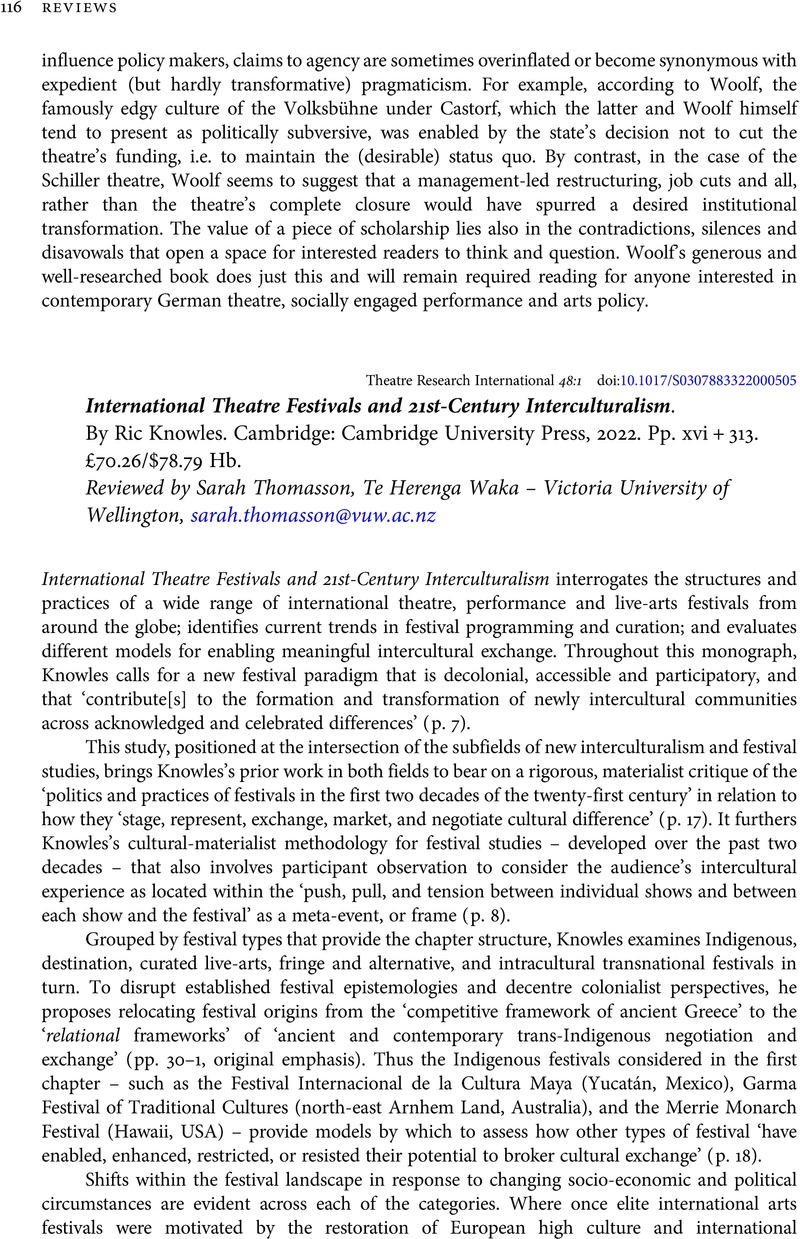No CrossRef data available.
Article contents
International Theatre Festivals and 21st-Century Interculturalism. By Ric Knowles. Cambridge: Cambridge University Press, 2022. Pp. xvi + 313. £70.26/$78.79 Hb.
Review products
International Theatre Festivals and 21st-Century Interculturalism. By Ric Knowles. Cambridge: Cambridge University Press, 2022. Pp. xvi + 313. £70.26/$78.79 Hb.
Published online by Cambridge University Press: 09 February 2023
Abstract
An abstract is not available for this content so a preview has been provided. Please use the Get access link above for information on how to access this content.

- Type
- New Books
- Information
- Theatre Research International , Volume 48 , Special Issue 1: Presence and Precarity in (Post-)Pandemic Theatre and Performance , March 2023 , pp. 116 - 117
- Copyright
- Copyright © International Federation for Theatre Research 2023


